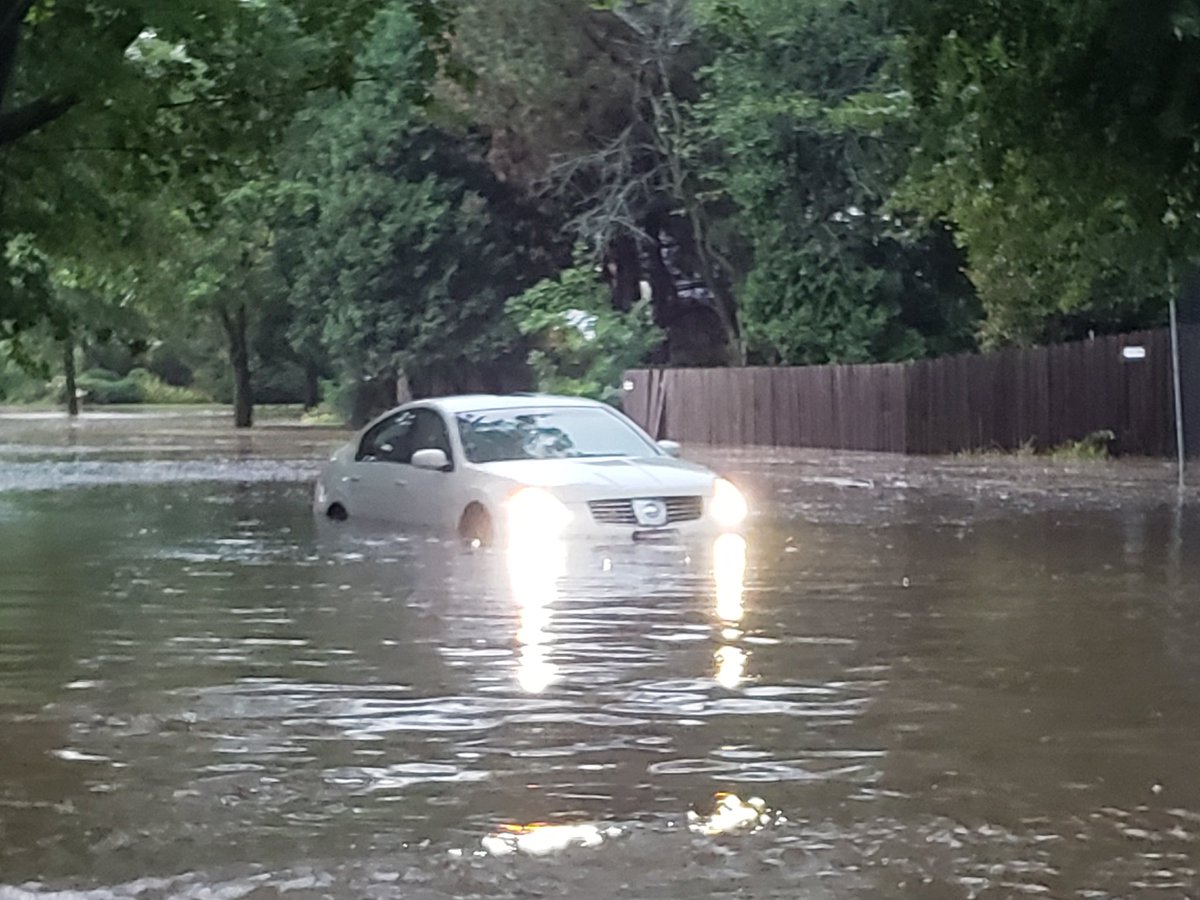Public facility damage in Dane Co. key to Fed. recovery aid
I note that preliminary damage estimates from recent Madison-area flooding top $100 million, with roughly a third tied to public asset losses.
I'd been tracking and posting these events all week, here.

And the probability of more rain and fresh damage only adds to the stresses county-wide, including whether what is clearly a major disaster in southern Wisconsin will meet enough federal criteria to release welcome financial assistance and spur immediate and lasting reconstruction.
If I remember how disaster accounting took place after flooding in Milwaukee when I worked for Mayor John Norquist in the late '90's, the county was in charge of gathering local municipalities' damage assessments, with final federal evaluations and federal aid decisions taking weeks, at a minimum.
What was critical to the release of federal aid was the extent of damage to common facilities, like roads, bridges or other public infrastructure or material, with the possibility that assistance might be provided, but not necessarily aimed at individual homeowners or businesses.
I read FEMA's standards and rules here; basically, the feds assess the damage estimates which they receive from state and local officials and may make a range of declarations which can release various levels of assistance. Or FEMA can decide that recovery is within the ability of state, municipal and individual claimants to absorb.
There's no magic dollar threshold that releases federal aid, and there is the possibility of a federal finding that will be disappointing to some; for example, individual property owners who find themselves eligible for low-interest federal loans may lack the ability to take on more debt.
So critical factors are the various forms of insurance or aptly-named 'rainy day' resources at hand, and the bottom-line damage estimates passed up the chain of command to FEMA, particularly with regard to public property - - roads, bridges, etc. - - because those are commonly-purchased assets and their sudden loss has widespread consequence the wider and longer their reach.
I repeat again that this is the time when public service work is so obviously crucial, as it is when the floodlights are not brightly lit.
Final thought.
Federal disaster declarations and the release of dollars are not supposed to be political processes. All the preparatory work at FEMA will be done by civil servants, and some perhaps by consultants, but ultimately, the final determinations are made by political appointees.
It would obviously help if there were good relationships among the state and federal officials most-intimately involved, but to me it is not clear what baseline political messages Walker and Trump care to highlight right now on issues like the role of government, the sufficiency of state resources, let alone the engagement of Trump's White House and its priorities.
The best way I think to sum up the road ahead is that it should not be political, anything can be.
I'd been tracking and posting these events all week, here.

And the probability of more rain and fresh damage only adds to the stresses county-wide, including whether what is clearly a major disaster in southern Wisconsin will meet enough federal criteria to release welcome financial assistance and spur immediate and lasting reconstruction.
If I remember how disaster accounting took place after flooding in Milwaukee when I worked for Mayor John Norquist in the late '90's, the county was in charge of gathering local municipalities' damage assessments, with final federal evaluations and federal aid decisions taking weeks, at a minimum.
What was critical to the release of federal aid was the extent of damage to common facilities, like roads, bridges or other public infrastructure or material, with the possibility that assistance might be provided, but not necessarily aimed at individual homeowners or businesses.
I read FEMA's standards and rules here; basically, the feds assess the damage estimates which they receive from state and local officials and may make a range of declarations which can release various levels of assistance. Or FEMA can decide that recovery is within the ability of state, municipal and individual claimants to absorb.
There's no magic dollar threshold that releases federal aid, and there is the possibility of a federal finding that will be disappointing to some; for example, individual property owners who find themselves eligible for low-interest federal loans may lack the ability to take on more debt.
So critical factors are the various forms of insurance or aptly-named 'rainy day' resources at hand, and the bottom-line damage estimates passed up the chain of command to FEMA, particularly with regard to public property - - roads, bridges, etc. - - because those are commonly-purchased assets and their sudden loss has widespread consequence the wider and longer their reach.
I repeat again that this is the time when public service work is so obviously crucial, as it is when the floodlights are not brightly lit.
Final thought.
Federal disaster declarations and the release of dollars are not supposed to be political processes. All the preparatory work at FEMA will be done by civil servants, and some perhaps by consultants, but ultimately, the final determinations are made by political appointees.
It would obviously help if there were good relationships among the state and federal officials most-intimately involved, but to me it is not clear what baseline political messages Walker and Trump care to highlight right now on issues like the role of government, the sufficiency of state resources, let alone the engagement of Trump's White House and its priorities.
The best way I think to sum up the road ahead is that it should not be political, anything can be.









No comments:
Post a Comment